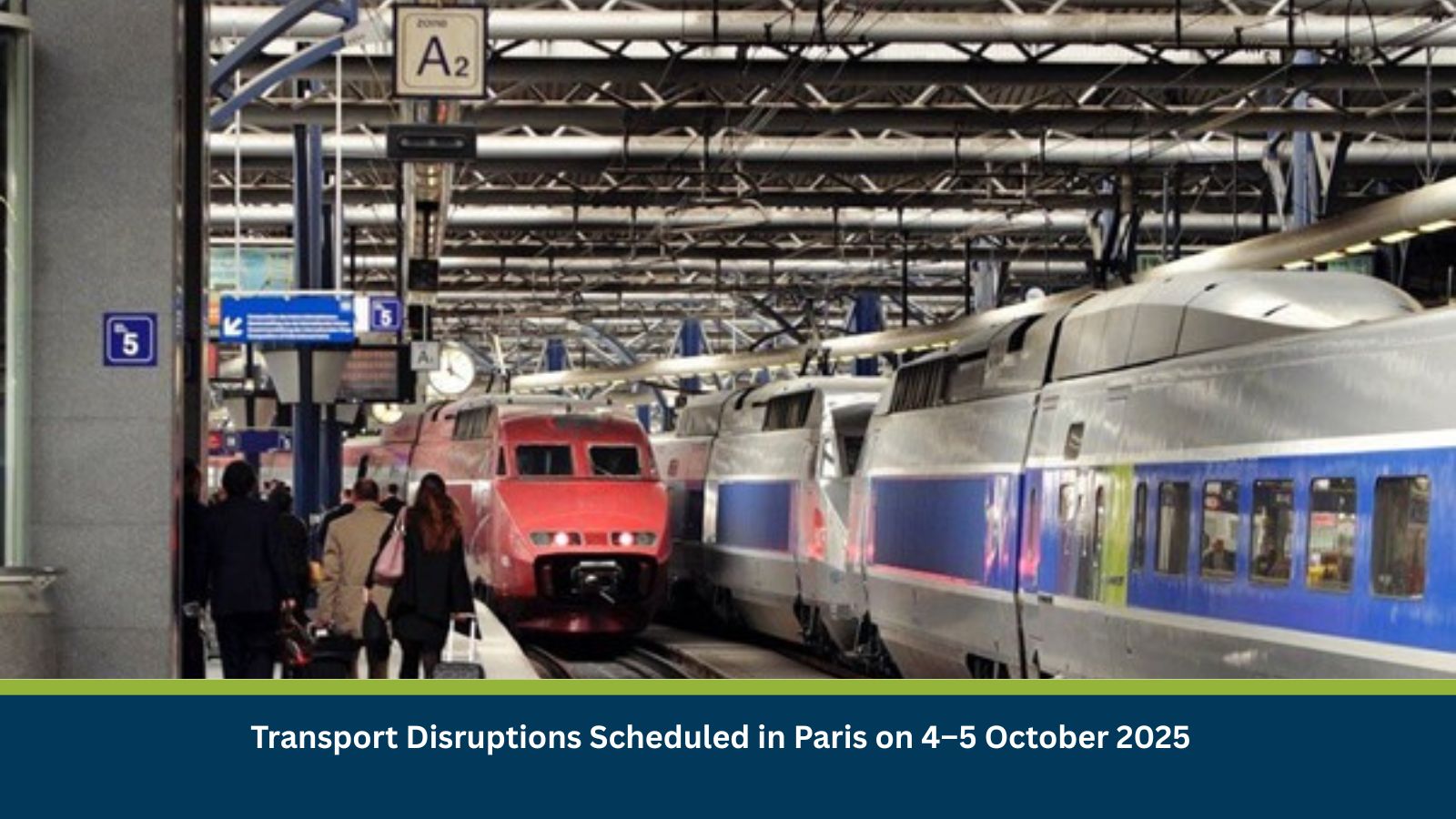What is Risk Analysis in the Context of Travel Risk Events
Travel risk analysis assesses how scheduled or unscheduled transport disruptions affect urban mobility, business continuity, and public safety. In Paris, planned maintenance on metro and RER lines is a recurring operational necessity, often leading to temporary congestion, delays, and increased road traffic. Such disruptions, while typically low-risk, can still create logistical challenges, particularly during peak weekends or in areas dense with tourism and commerce.
Executive Summary
- Date of Incident: 4–5 October 2025
- Location: Paris, France
- Risk Category: Travel Risks
- Severity Score: 2/5
- Confidence Level: 95%
Scheduled maintenance will disrupt public transport services across parts of Paris on Saturday and Sunday. Metro Line 12 and several RER lines will experience closures and reduced frequency, primarily affecting mobility in the Île-de-France region. The event is routine, short-term, and pre-announced by RATP and SNCF, minimizing the risk of serious safety or operational crises. Disruption is expected to last 48 hours, with localized congestion, slower commutes, and minor logistical delays for residents and businesses.
Current Updates
Transport operators RATP and SNCF have announced planned service interruptions for 4–5 October. Metro Line 12 will be closed on Sunday evening for scheduled maintenance, while various RER lines will undergo weekend repair work, causing partial closures and service reductions. Authorities have advised passengers to allow extra travel time and use alternative routes.
Known Hotspots and Sensitive Areas
- High Impact: Metro Line 12 corridor (Mairie d’Issy to Aubervilliers), including Montparnasse-Bienvenue, Concorde, Saint-Lazare, and Madeleine.
- Medium Impact: RER interchange hubs such as Châtelet-Les Halles, Gare du Nord, and Gare de Lyon—key commuter and airport connection points.
- Low Impact: Peripheral and suburban areas outside core maintenance zones.
These locations regularly experience congestion during scheduled weekend works, particularly in central Paris and major interchange hubs.
Impact on Transportation and Services
Expect extended journey times, metro and RER delays, and increased reliance on buses and private transport. Ride-sharing demand will rise, causing traffic congestion around key stations. Businesses relying on punctual deliveries or customer footfall may face moderate disruptions, while tourism-related sectors could experience slight weekend slowdowns. No aviation or intercity rail impacts are anticipated.
Recommended Actions
- Immediate (Before 4 October):
- Issue internal travel advisories to all staff and customers highlighting expected disruptions.
- Encourage flexible work arrangements or remote options where feasible.
- Operational Adjustments:
- Coordinate logistics or client meetings to avoid affected time slots.
- Provide alternate commuting support (taxis, carpooling) for essential staff.
- Safety & Communication:
- Ensure all personnel have access to live RATP/SNCF updates via official apps or SMS alerts.
- Inform clients of possible delivery delays and offer virtual alternatives for meetings.
- Strategic (Post-Event):
- Review continuity measures for future transport disruptions.
- Maintain liaison with local authorities for timely intelligence on upcoming works.
Multidimensional Impact
The dual-day maintenance activity will have a localized yet measurable impact on Paris’s urban mobility network. Increased surface traffic, longer commute times, and limited RER connectivity will test the resilience of city transport systems. While no major safety or infrastructure risks are foreseen, compounded effects—such as simultaneous small protests or tourist influx—could elevate congestion levels. Businesses in central Paris may face short-term operational inefficiencies and minor revenue dips, especially in hospitality and retail sectors. Environmental effects remain minimal beyond marginal increases in vehicular emissions from diverted commuters.
8. Emergency Contacts
- Police: 17
- Fire Department: 18
- Ambulance: 15
- RATP (Paris Metro): [@RATPGroup on X]
- SNCF (National Rail): [@SNCF on X]
Final Thoughts
The event trajectory indicates a short-term, low-severity, and well-controlled disruption, with conditions expected to stabilize by early Monday morning (6 October). Businesses should prioritize proactive communication, mobility coordination, and operational planning rather than deploying full-scale crisis response measures. While the disruption remains minor, such routine maintenance events serve as important reminders of the need for adaptive travel protocols, employee flexibility, and continuous situational monitoring to ensure uninterrupted urban and business continuity. Stay ahead of operational risks with real-time alerts, scenario modeling, and expert advisories with datasurfr’s Predict. Start your 14-day free trial of Datasurfr’s Risk Intelligence Platform today.






